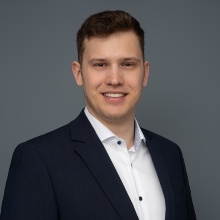Contact
Office Hours
- In November 2023, I started a PostDoc position at Universität Hamburg.
- Since October 2024, I am a senior PostDoc at LMU Munich.
You can find a current list of publications in my Google Scholar profile.
nel networks for data-driven closure terms of turbulent flows. In I. Lirkov and
S. Margenov, editors, Large-Scale Scientific Computing, pages 410–418, Cham, 2022.
Springer International Publishing
P. Gavrilenko, B. Haasdonk, O. Iliev, M. Ohlberger, F. Schindler, P. Toktaliev,
T. Wenzel, and M. Youssef. A full order, reduced order and machine learning model
pipeline for efficient prediction of reactive flows. In I. Lirkov and S. Margenov, editors,
Large-Scale Scientific Computing, pages 378–386, Cham, 2022. Springer International
Publishing.
B. Haasdonk, H. Kleikamp, M. Ohlberger, F. Schindler, and T. Wenzel. A new
certified hierarchical and adaptive RB-ML-ROM surrogate model for parametrized PDEs.
ArXiv, (2204.13454), 2022. Submitted.
T. Wenzel, G. Santin, and B. Haasdonk. Analysis of target data-dependent greedy
kernel algorithms: Convergence rates for f -, f · P - and f /P -greedy. ArXiv,
(2105.07411), 2021. Accepted for publication in Constructive Approximation.
T. Wenzel, G. Santin, and B. Haasdonk. Universality and Optimality of Structured
Deep Kernel Networks. ArXiv, (2105.07228), 2021. Submitted.
T. Wenzel, G. Santin, and B. Haasdonk. Stability of convergence rates: Kernel
interpolation on non-Lipschitz domains. ArXiv, (2203.12532), 2022.
2021:
T. Wenzel, G. Santin, and B. Haasdonk. A novel class of stabilized greedy kernel
approximation algorithms: Convergence, stability and uniform point distribution.
Journal of Approximation Theory, 262:105508, 2021.
2019:
B. Haasdonk, T. Wenzel, G. Santin, and S. Schmitt. Biomechanical surrogate mod-
elling using stabilized vectorial greedy kernel methods. In F. J. Vermolen and
C. Vuik, editors, Numerical Mathematics and Advanced Applications ENUMATH
2019. Springer International Publishing, 2021.
- Summer term 2019: Assistance to "Numerische Grundlagen"
- Winter term 2019/20: Assistance to "Mathematik für Wirtschaftswissenschaftler"
- Summer term 2020: Assistance to "Numerical methods for differential equations"
- Deep greedy kernel methods for submodel coupling in fluid- and biomechanics
- ML-MORE: Maschinelles Lernen und Modellordnungsreduktion zur Vorhersage der Effizienz katalytischer Filter
- 2019: Graduation award from Robert Bosch GmbH
- 2021: PhD Scholarship of the German Academic Scholarship Foundation
- 2025: Leslie Fox Prize for Numerical Analysis
- Representative of the German Academic Scholarship Foundation (since 2022)
- Elected representative in the senate of the University of Stuttgart (since 2021)
- Board member of the PhD student representatives (since 2020)
- Elected PhD spokesperson of the Cluster of Excellence SimTech (2019 - 2021)


